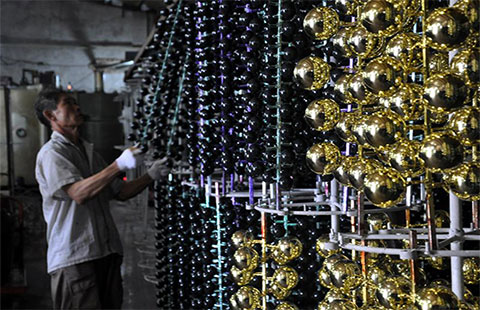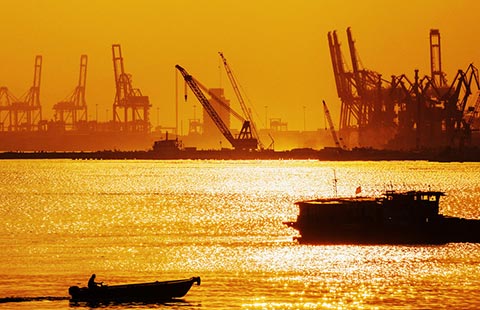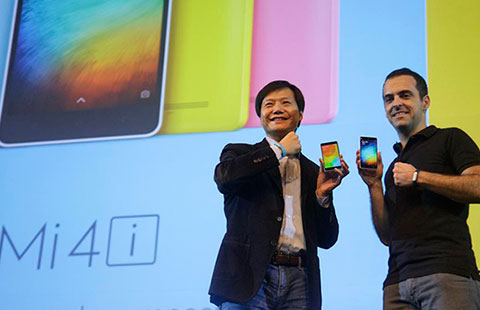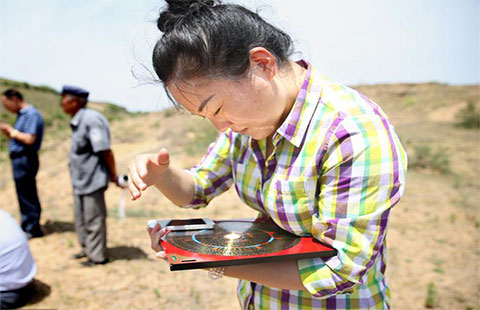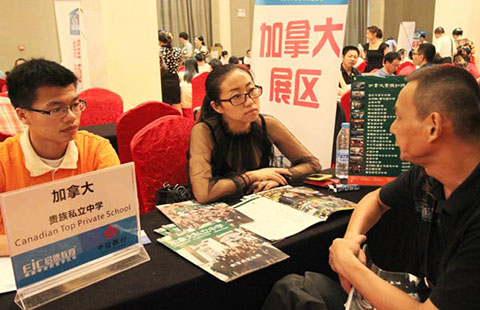Trade is tool to fix global economy
By Zhang Yuwei in Los Cabos, Mexico (China Daily) Updated: 2012-06-20 10:19Despite tough economic times including the eurozone crisis and slower growth from emerging economies, business leaders on Monday pressed the world's governments to focus on promoting trade and investment, which they say is the lifeblood of the global economy.
At a meeting billed as B20 - coinciding with a gathering of heads of state from the G20 industrialized and developing countries - more than 300 businesspeople began two days of discussion on issues including food and security, green growth, employment, and trade and investment. Their goal is to draft recommendations for the G20 to consider during the government leaders' meeting on Monday and Tuesday in the same Mexican resort of Los Cabos.
"What really counts at the end of the day is the real economy - that's people's jobs, how people consume, and global trade and investment," said Victor Fung, chairman of Hong Kong-based Li & Fung Group, which has subsidiaries engaged in trading, logistics, distribution and retailing.
Fung, who co-leads a B20 task force on the subject, has been advocating for the past two such peripheral meetings to make trade and investment a permanent item on the G20's agenda. Trade liberalization will boost the global economy without countries printing money or taking on more debt, he said.
"Trade and investment is at the heart of the real economy globally, and what we must do here is to see how the business community can build on it," said Fung, adding that G20 leaders should focus more on investments that can generate growth despite the bleak economic picture.
"Trade and investment are not separable - they are two sides of the same coin," said Fung. He believes a multilateral trade system should be set up to govern the movements of foreign direct investment.
"Today, if you take China as an example, it is both an investor and a taker of investments. Even the US, as a big investor, is very much looking for foreign direct investments."
Fung suggested there be more pragmatic ways to achieve trade agreements, a reference to the World Trade Organization's principle of "single undertaking," meaning participants have to accept or reject the outcome of multiple negotiations in a single package rather than selecting among them.
This approach of "nothing is agreed until everything is agreed" needs flexibility in today's economy, Fung insisted. "That rule is very difficult to apply today" and stands in the way of the WTO's resuming its long-stalled round of negotiations begun in Doha, Qatar, in late 2001.
The Doha round was intended to lower trade barriers among different countries but have been deadlocked due to disputes between and among developed and developing countries on issues involving industrial tariffs, services and non-tariff impediments such as agricultural subsidies provided to European and US farmers.
Although G20 leaders at their 2010 summit in Seoul called for bringing the Doha round to "a successful, ambitious, comprehensive and balanced conclusion", the talks remain stalled.
On Monday, Fung said: "If we simply start implementing the trade facilitation part of Doha negotiations, it will result in a reduction of the cost of doing international trade from 10 percent to 5 percent."
His B20 task force on trade and investment has also been pushing the G20 to recognize the harmful effects on the global economy from trade protectionism. "There is a tendency for protectionism to rise, hence we must focus on how we can hold the line on protectionism," Fung said.
The Open Markets Index, which monitors countries' openness to trade and investment, set up by the International Chamber of Commerce, showed that most G20 countries fall behind except for Germany, which ranked 19th. The G20, which represents over 80 percent of the world's total economic output, as a group ranked average out of 75 countries for its openness to trade.
yuweizhang@chinadailyusa.com
- Christmas come early to Santa's workshop in Yiwu
- Change of leadership at Big Three telecoms
- Stocks tumble to five-month low as State support fails
- Tax exempt car models released in govt list
- Controversy continues over car-hailing apps
- Safety issues prompt Volvo to recall SUVs
- New-energy BAIC car plant opens in Qingdao
- New arrival: Lexus ES
